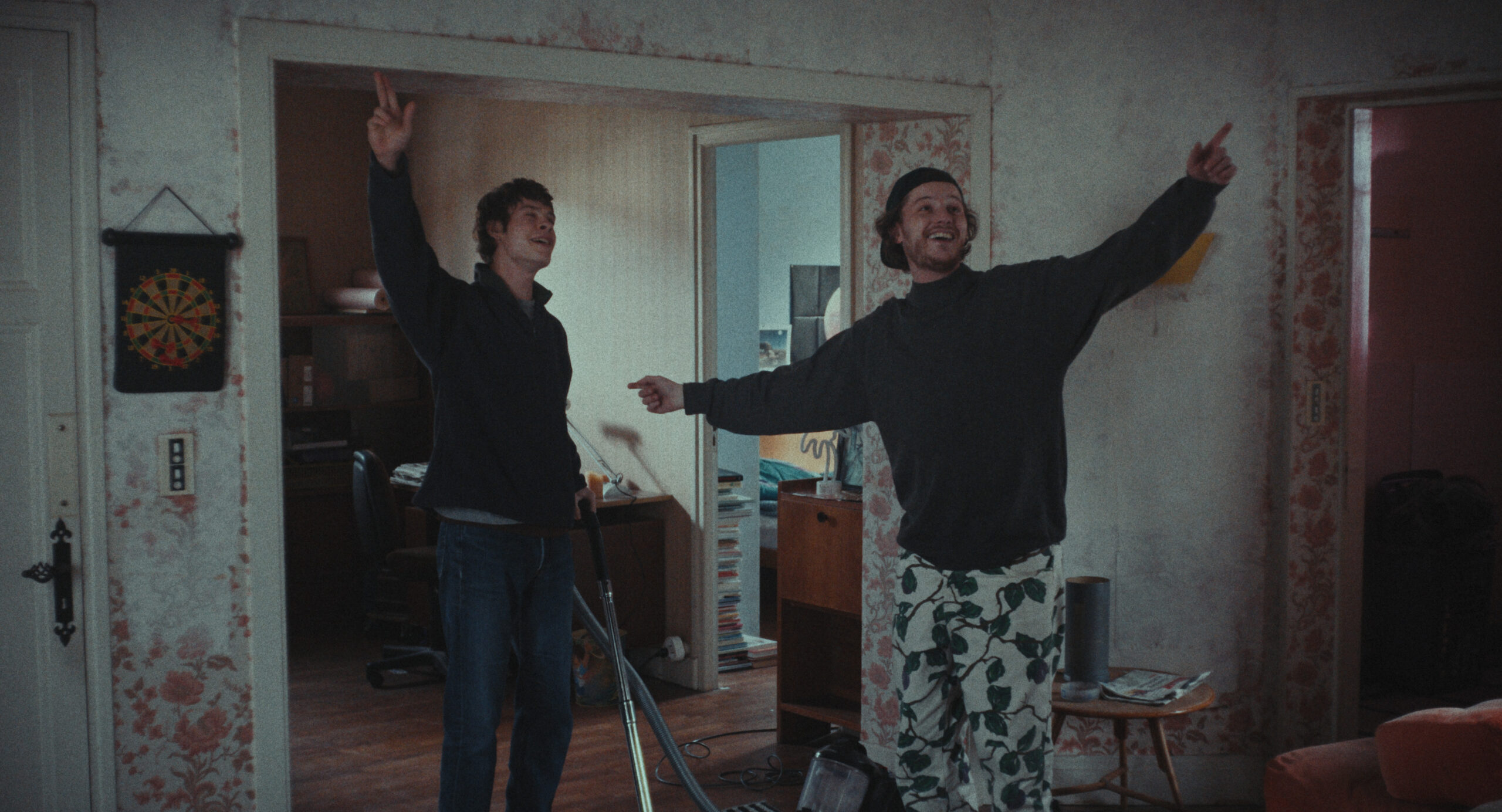One of the exciting competition entries in the Un Certain Regard section of this year’s Cannes Film Festival is Hubert Charuel’s second narrative feature, Météors (Meteors), which he co-wrote with Claude Le Pape.
The film centers on a deep bond between two young men that borders on—but never overtly dives into being—a love story. There are no defining lines here but I’m guessing that het crix will label it a friendship and queer journos, like myself, will see more than that, especially since the filmmakers dispense with the usual necessity to give the gents girlfriends or have them lustfully discuss women. There is none of that. There is, however, a deep and true devotion at play. There is also beaucoup plot as well as many themes and ideas explored in this gripping work.
Mika (Paul Kircher) and Dan (Idir Azougli) are two super close, but staggeringly different, mates who live in the kind of small French suburban town that no one gives a second thought about—a soul-crushing rural wasteland, if you will. Despite being in their twenties, both are psychologically in that strange space between the “boys will be boys” hijinks of one’s teens and the “must face reality” of adulthood. Dan is what one might call a reckless slacker while Mika, who has a free-lance job as a journalist but also works part time at Burger King, has greater ambitions. Neither seem to have any family. But they have each other.
The film’s opening scenes almost deceive the audience into thinking they’re about to watch some kind of buddy dramedy. Alas, things turn gravely serious pretty quickly and a gloomy nihilistic tone takes over.

When we first meet the lads they’re smoking weed (or it could be hashish), bowling, hanging out with their friend Tony (Salif Cissé) and chatting about a 5000 euro reward being offered on social media for a carp called, “Moby Dick” —an odd plot point that will come into play later. They also have a pipe dream of fleeing their stifling town. But it all comes crashing down when Dan, on what appears to be a whim, ropes Mika into an attempt to steal a prize-winning feline named Sunset, which lands the boys in jail. Both face large fines and potential jail time. And they need to remain clean and sober.
For Mika, it’s a chance to clean up his act. Dan, on the other hand, despite suffering from cirrhosis of the liver, goes in the opposite direction. And they turn to their friend, Tony, for work, at a nuclear waste site, both a literal and metaphorical disaster for our protagonists..
From this point onward, Météors spins an anxiety-infused, unpredictable tale that keeps focus on the relationship at the heart of the story, while also touching on themes of class, identity, addiction, loyalty, ambition…and environmental pollution. That bond has Mika desperately trying to save Dan, who seems bent on destruction.
Had two upper middle class boys stolen the cat, their lives would not have been drastically altered. If Mika and Dan were born into a different town, a different society, their futures wouldn’t look so bleak. And maybe they’d be able to get past their hyper-masculine milieu and realize what they truly mean to one another and take that to the next level. (The gay in me had to toss that in.)

The film soars because the two leads are absolutely mesmerizing to watch and the bond they’ve created onscreen is palpable.
Azougli is heartbreaking as Dan, someone you want to both smack upside the head and cradle in your arms.
Kircher is one of France’s most promising actors. In the last three years he has done extraordinary work onscreen. In Christophe Honoré’s deeply affecting Winter Boy, he showed a captivating fearlessness playing a young gay man in the aftermath of a familial tragedy. He delivered another revelatory performance in Thomas Cailley’s The Animal Kingdom. And last year, astonished filmgoers again in the coming of age drama And Their Children After Them, directed by Ludovic Boukherma and Zoran Boukherma. So his subtle but potent work in Météors comes as no surprise, nor his keen ability to allow us to feel Mika’s confusion, his deep love for Dan set against his steadfast desire to better himself.
Mika and Dan’s struggles are real. They can dream of breaking free but as Jane Fonda’s Gloria cynically muses in Sydney Pollack’s seminal 1969 depression-era, dance-marathon masterpiece, They Shoot Horses, Don’t They?, “They got it all rigged before you ever show up.”









